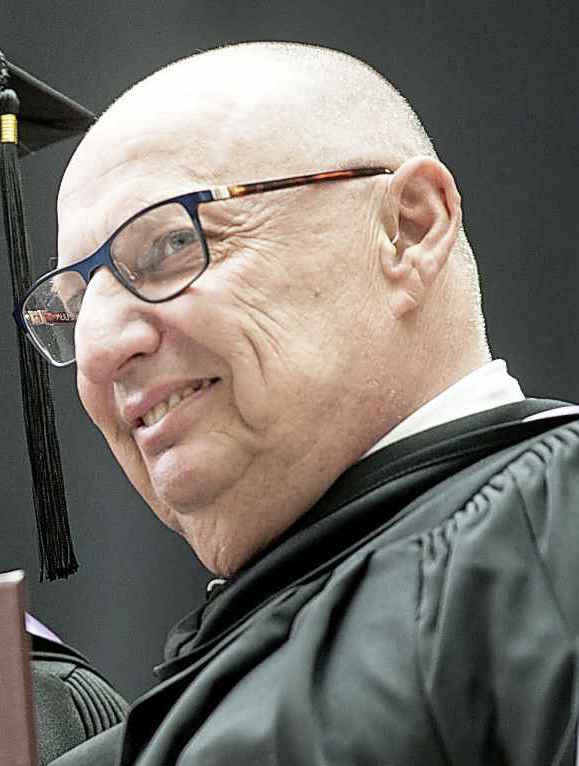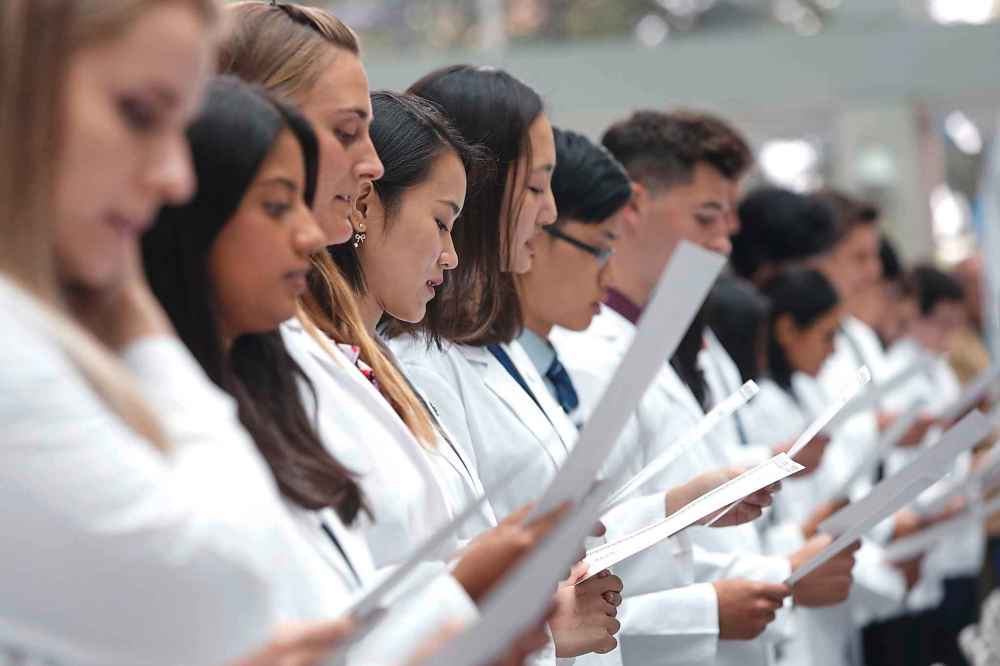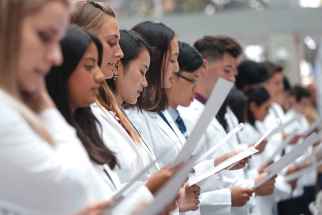Canada-Saudi spat threatened to cost U of M millions
Read this article for free:
or
Already have an account? Log in here »
To continue reading, please subscribe:
Monthly Digital Subscription
$0 for the first 4 weeks*
- Enjoy unlimited reading on winnipegfreepress.com
- Read the E-Edition, our digital replica newspaper
- Access News Break, our award-winning app
- Play interactive puzzles
*No charge for 4 weeks then price increases to the regular rate of $19.00 plus GST every four weeks. Offer available to new and qualified returning subscribers only. Cancel any time.
Monthly Digital Subscription
$4.75/week*
- Enjoy unlimited reading on winnipegfreepress.com
- Read the E-Edition, our digital replica newspaper
- Access News Break, our award-winning app
- Play interactive puzzles
*Billed as $19 plus GST every four weeks. Cancel any time.
To continue reading, please subscribe:
Add Free Press access to your Brandon Sun subscription for only an additional
$1 for the first 4 weeks*
*Your next subscription payment will increase by $1.00 and you will be charged $16.99 plus GST for four weeks. After four weeks, your payment will increase to $23.99 plus GST every four weeks.
Read unlimited articles for free today:
or
Already have an account? Log in here »
Hey there, time traveller!
This article was published 09/01/2019 (2534 days ago), so information in it may no longer be current.
OTTAWA — The University of Manitoba almost lost $2.7 million as a result of Canada’s spat last summer with Saudi Arabia, the Free Press has learned.
Documents obtained through a freedom-of-information request show how the province’s largest university dealt with a series of conflicting messages from Saudi Arabia and tried supporting 50 students from the country, whose government was asking them to suddenly return home.
In August 2018, Saudi Arabia expelled Canada’s ambassador and ceased all new trade, after the federal Liberals called on the kingdom to release imprisoned women’s rights activists.

U of M responded within 24 hours of news breaking that Saudi Arabia would also suspend its scholarships for students in Canada, and had asked all of them to either return or pursue studies elsewhere within a month.
In an Aug. 7 memo, dean of medicine Brian Postl asked department heads to find contingency plans for filling medical shifts scheduled for 20 Saudi residents and fellows, and to “plan accordingly for rate financial impact of their departure.”
Within days, U of M staff asked students to update them on what information their Ottawa embassy was giving, and to avoid “drastic changes” such as breaking a lease or selling a car. They offered to “stop the clock” for graduate students, halting any new fees or penalties for missed classes.
The medical program offered to find any possible ways students nearing the end of their program could write final exams or complete required hours abroad.
Four days after the announcement, staff were still grappling with mixed information from the Saudis.
“The situation is fluid and it is still unclear whether the directive applies to all Saudi students, or only students receiving funding,” enrollment head Jeff Adams wrote Aug. 10.
In a conference call that day, senior U of M staff noted Saudi students were told three separate departure dates to prepare for, and some were told they’d be placed at an American university.
An administrative note warned pulling out so many students would impact how the faculty operates for remaining students, with “programs relying on (medical) residents.”
By that point, U of M staff were in touch with the bodies for Canada’s large universities, as well as International Trade Diversification Minister Jim Carr.
A week after the Saudi announcement, International Centre head Susie Taylor wrote to the students, encouraging them to seek counselling, and speak with advisors about how to transfer credits.
“We understand this is a stressful situation for you,” she wrote.
By Aug. 16, U of M had decided to waive transcript fees for Saudi students owing less than $1,000 to the university. The university also decided to waive fees “on a case-by-case basis,” but asked staff not to tell students this was an option.
‘As part of prudent planning, the university calculated potential costs were all Saudi students to cease their studies. In the end, that did not happen and, in fact, there was no financial loss’
– John Danakas
A finance manager noted some Saudi students had cancelled their enrollment for fall 2018.
“We are now seeing students coming forward with questions and preparing to leave,” she wrote. “It appears the students are still actively hoping for a resolution before the start of fall term, but are beginning to plan for return to Saudi Arabia if no resolution in the next (two) weeks.”
On Aug. 21, the Saudi government had extended its deadline to Sept. 22. A week later, it made a last-minute decision to allow medical students to stay in their Canadian programs.

At least some non-medical students went home at the end of the summer. On Oct. 4, the Saudis told Canadian universities their scholarship students were allowed to return to Canada if they were at the graduate level or nearing the end of a bachelor’s program.
U of M staff suggested they return in early 2019, because it was likely too late for many to register for fall classes, which would void their student visas and medical coverage.
It is unclear whether all Saudi Arabian students at U of M stayed with the school, or if any relocated to the United States or back home. The university declined an interview with its senior officials, but said the institution didn’t lose a dime from the spat.
“As part of prudent planning, the university calculated potential costs were all Saudi students to cease their studies. In the end, that did not happen and, in fact, there was no financial loss,” wrote spokesman John Danakas.
He said the university “responded robustly” to the challenge.
“The institution appreciated the potentially challenging situation students were placed in and did everything possible to address their concerns. Units were prepared to manage any impacts. In the end, the uncertainty did not last long and the impacts were few,” Danakas wrote.
In a briefing note, university staff noted 1,085 Saudi students had studied at U of M since 1999, though the annual number had fallen from a peak of 109 students in 2012. The university’s academics had co-published work with staff at 11 institutions in that country.
“All international partnerships are highly valued by the University of Manitoba, as they improve our province’s global attractiveness and competitiveness and enhance learning and discovery.”
It’s unclear how the departure of 20 Saudi medical residents would have impacted on health care in the city. The Winnipeg Region Health Authority didn’t undertake an analysis of such a risk
“The potential impact from the potential Saudi pullout issue was primarily managed by the U of M college of medicine,” wrote spokesman Cory Kolt. “They were connected nationally.”
Last November, Journal de Montréal reported McGill University estimated it almost lost $17.4 million from the Saudi threat.
dylan.robertson@freepress.mb.ca
U of M records on Saudi Arabia student-pullout threat
U of W had no new Saudi students this term
OTTAWA — The University of Winnipeg had none of its six accepted students from Saudi Arabia register this past fall, though Canada’s diplomatic spat had minimal impact on the school.
Documents the Free Press obtained through a separate freedom-of-information request show that the school estimated its potential loses as anywhere from $41,000 for three existing students, to up to $1 million for six Saudi students who had been accepted for the fall 2018 term.
“It’s hard to say,” wrote registrar Colin Russell on Aug. 9. “The seats that they would have taken are available for other students instead, so we won’t actually experience as much real lost revenue.”
The response came as part of efforts by Universities Canada to advise the Prime Minister’s Office on what impact Saudi Arabia’s threatened pullout could have on Canadian schools.
In a Thursday interview, Russell said none of the six accepted Saudis ended up attending UW, though there’s no clear reason why they didn’t register. Each would have contributed between $54,000 and $153,000 depending on how long they studied, and in which programs.
“It’s unlikely that all of them would have come — and that [the cost] would have been that high,” he said. “In most classes they would have taken, someone would’ve taken their spot.”
The documents show that within days of the news, an advanced chemistry student at UW flew to Ottawa to plead at the Saudi embassy for the ability to complete her program; the university said she was successful. The student had been working on a scientific thesis since September 2016, accusing roughly $5,500 in lab costs and hours of faculty time.
“In her absence, we will not be able to finalize the data, and certainly [there will be a] cost to natural product chemistry research at the UW,” wrote professor Athar Ata.
The documents show that the other two students were studying marketing and business administration.
In a memo to various schools, the federal Immigration Department said it was ready to extend temporary work permits to “destitute students” who were not able to pursue their classes. The permits would only last for the school year and would support pupils’ living costs if they could prove their government was withholding their scholarship money.
Russel said the last time UW was insnared in any international incident was when China was blocking multiples websites of institutions abroad, which temporarily made it harder for prospective students to apply.
—Dylan Robertson
History
Updated on Wednesday, January 9, 2019 6:32 PM CST: Adds photo.
Updated on Thursday, January 10, 2019 4:21 PM CST: adds info about u of w
Updated on Thursday, January 10, 2019 4:57 PM CST: adds link to u of w documents







